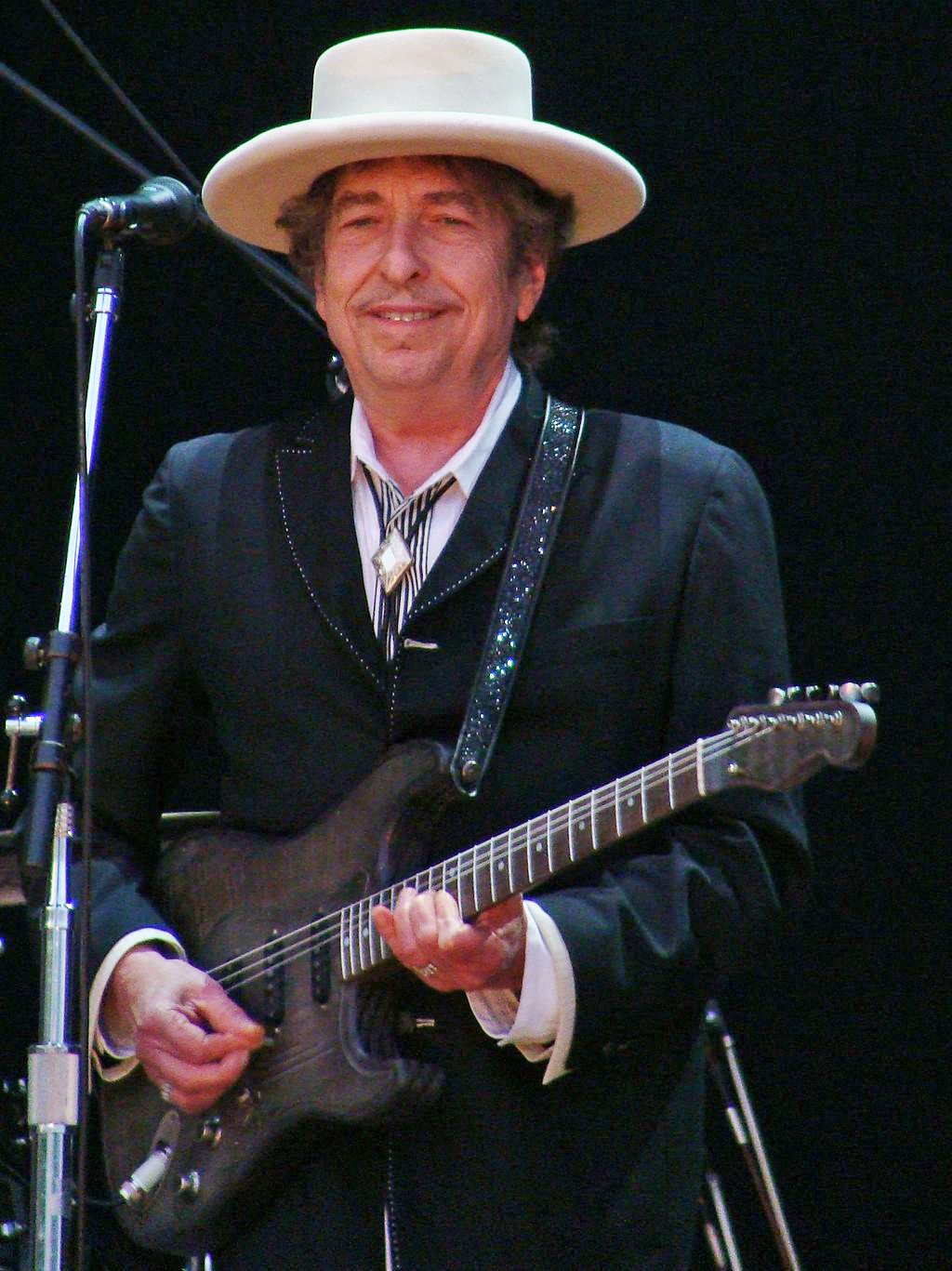
Bob Dylan was born Robert Allen Zimmerman on May 24th, 1941 in the city of Duluth, Minnesota. He grew up to become a musician, focusing on the genre of American rock and roll; he performed with the pseudonym Bob Dyan at various clubs, eventually permanently changing it to his name. What was so influential about his presence in the music industry was his lyrics, which many regarded as not only catchy words but a type of literature unto itself. He wrote about important social issues as well as real life events, which captured and inspired the nation. He became an activist singer at the urge of his then girlfriend Suze Rotolo who's parents were union organizers and volunteers; his first activist song was "The Death of Emmett Till". He believed in the power of songs, the power that they could create and effect change in the world and in people's hearts.
He wrote many songs that were concerned with racial issues such as "Oxford Town" (about the admittance of a black man into and all white school), but his song "Blowin' in the Wind" was the song to put him on the map as not only an activist but a popular singer as well; this now extended his influence and power to get his message out to people. However, because of the fact that so many Americans were beginning to endorse the Vietnam war, Dylan wrote to show his disapproval and his protests. He wrote the song "The Times Are A'Changing" before the public began to protest the war in 1963, which included many controversial lyrics such as "Come mothers and fathers/throughout the land/and don't criticize/what you can't understand/your sons and daughters are beyond your command." He was expressing the emotions parents were feeling such as anger and frustration at their helplessness while their children were sent to an unknown country to fight for a stupid war. Again, he believed in the power of music to send out his message to end the war and the suffering of millions of innocent soldiers.
Much of the critique of Bob Dylan stemmed from whether or not he truly advocated for the things he sang about; whether or not he sang for the people of for the money. While many believe it was for the money, it was assured that he sang from the heart. He was also accused of lyric plagiarism, which was disputed and dissolved.
_________________________________________________________________________________
The Chicago 7 trial, or also known as the Conspiracy Seven, was a group of 7 defendants (Abbie Hoffman, Jerry Rubin, David Dellinger, Tom Hayden, Rennie Davis, John Froines, Lee Weiner) who were charged with conspiracy and inciting a riot among other things. They attempted these crimes during the 1968 Democratic National Convention. The eighth member had his trial cut during the proceedings.
These young people were accused of breaking the Rap Brown law, which stated it was illegal to cross state lines in order to riot or conspire to use interstate commerce to incite rioting. They also organized protest marches and rock concerts at the Democratic National Convention, where conflicts between the police and the protesters turned into a full-blown riot. This also included the commonly used tear gas and police beating, as shared by every other riot; the press was there as well, denouncing the supposed overreaction by the police. Bobby Seale, mentioned above, was a defendant who protested loudly in the courtroom against the judge, calling him racist after he was not allowed a separate trial (he wanted his own lawyer who was recovering from surgery). Seale was eventually given a separate trial, after being gagged, and given 48 months in jail.
The other activists were encouraged to follow Seale's actions; they disrupted the trial as much as they could. Eventually they were found in contempt and sentenced to 29 months in jail. Kunstler, one of the seven, was given 4 years for referring to the judge's courtroom as a "medieval torture chamber". Five of the seven protesters were given lesser charges. From the testimony of the Timothy Leary, we also find a recount of the how he became aquainted with Jerry Rubin and Abbie Hoffman.
(Video of the Chicago 8)
https://www.youtube.com/watch?v=_a-sFuzmloE
(Testimony of Timothy F. Leary, a Democratic candidate for Gov in Cali. )
http://law2.umkc.edu/faculty/projects/ftrials/chicago7/leary.html
Without Bob Dylan i do not think that rock and roll have progressed as much as it did in this modern day of age and his lyrics have also inspired people to be more passionate.
ReplyDeleteI love Bob Dylan. The fact that his lyrics expressed social issues and real life events make him stand out among other artists.
ReplyDeleteI find it interesting how bob dylan used his music to state social issues
ReplyDelete